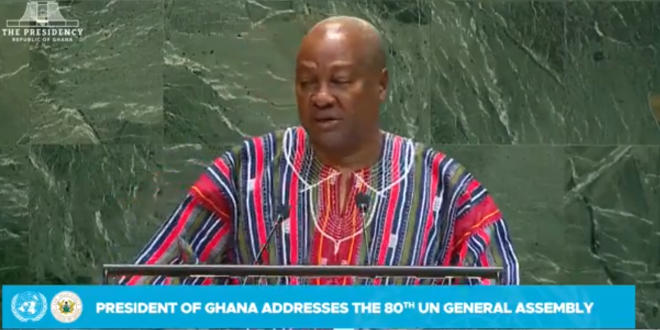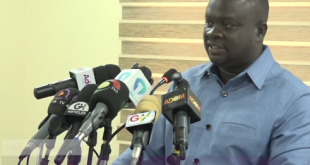President John Dramani Mahama has urged the international community to overhaul the global financial system, arguing that it remains deeply biased against Africa. Delivering Ghana’s national address at the 80th United Nations General Assembly, President Mahama called for both UN Security Council reform and a reset of the global financial architecture to ensure Africa has a stronger voice in multilateral financial institutions.
“We demand not only a reform of the Security Council, but also a reset of the global financial architecture, which is currently rigged against Africa. Africa must have a greater say in the world’s multilateral financial institutions,” Mahama told world leaders.
His comments come amid growing calls across the Global South for a more equitable international financial system, especially in the wake of global economic shocks and rising debt burdens in developing nations.
Showcasing Ghana’s Economic Turnaround
President Mahama also used the UN platform to highlight what he described as a remarkable economic recovery under his administration. He pointed to a sharp decline in inflation and a surge in investor confidence as signs of Ghana’s economic stabilization.
“In just eight months, we have achieved a significant reduction in inflation, from 23.8% in December 2024 to 11.5% in August 2025, restoring price stability for our citizens,” he said.
He further noted that the Ghanaian cedi has performed strongly against other global currencies, citing a Bloomberg report which at one point named it the best-performing currency in the world.
“Our improved sovereign credit rating reflects increasing investor confidence. Our 24-Hour Economy Initiative promises to transform our economy,” the president added, referring to his flagship policy aimed at expanding productivity and job creation.
Context and Significance
Mahama’s address comes at a critical time for Africa’s engagement with the global financial system. Several African leaders and economists have increasingly criticized institutions like the International Monetary Fund (IMF) and the World Bank for policies they argue constrain economic growth and sovereignty across the continent.
While calls for Security Council reform have been echoed for decades—particularly demands for permanent African representation—momentum has been building around restructuring global financial governance as well. African Union leaders are pushing for greater influence in decision-making on global debt relief, climate finance, and development funding.
Ghana’s recent economic rebound, if sustained, could serve as a model for post-crisis recovery in the region. Mahama’s remarks suggest his government is positioning the country not only as a regional leader but also as a strong voice in global economic debates.
 Adoa News Adoa News
Adoa News Adoa News




